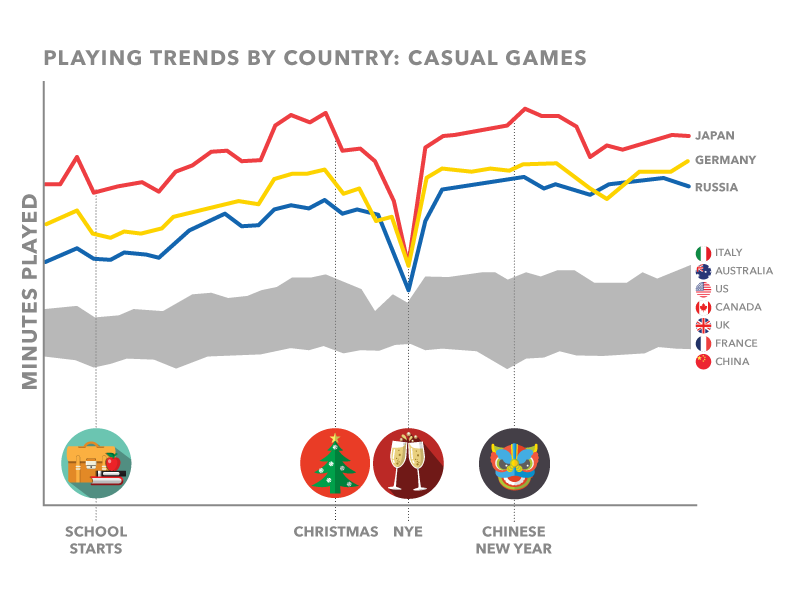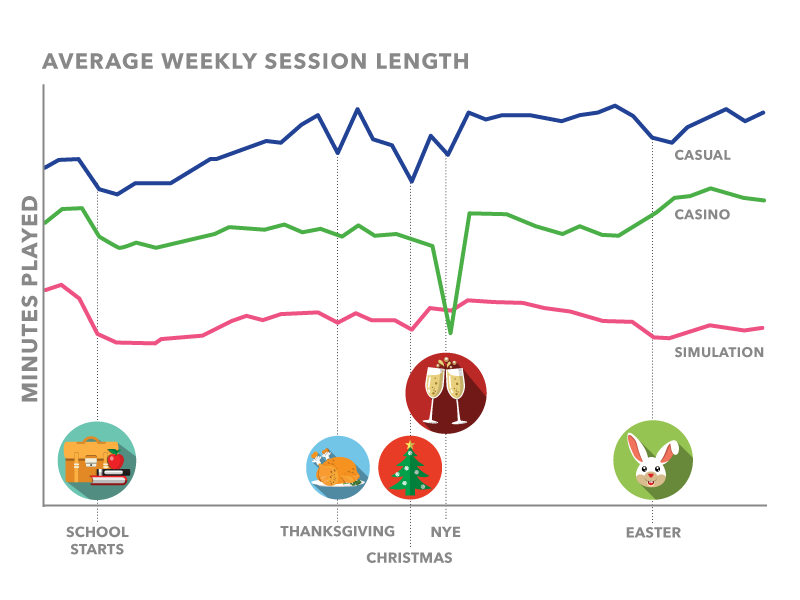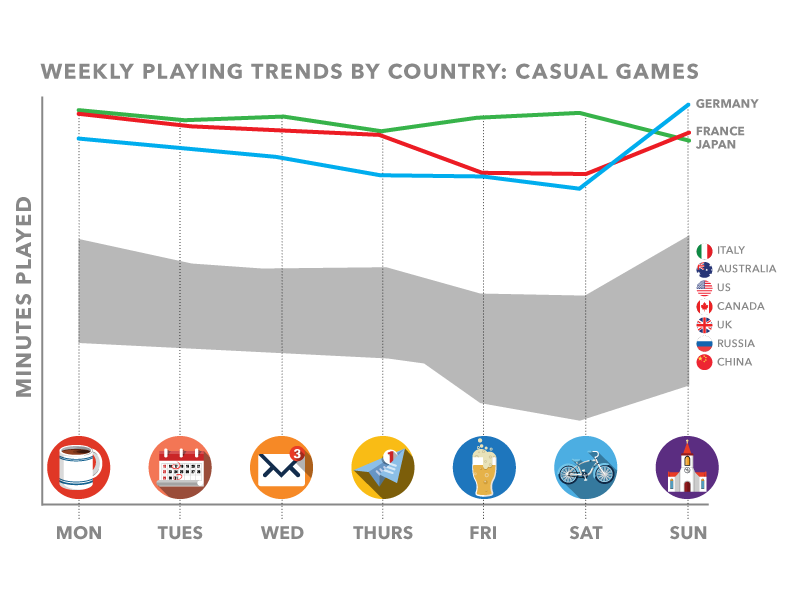Storm8, developers of the Dream City: Metropolis—which has a unique cross-promotion deal with Regal Cinemas—has taken a deep look at the global mobile gaming habits over the past year. The study, which covers the developers network of 75 million players globally, uncovered some surprising trends.
When asked what prompted the study, Terence Fung, Storm8’s chief strategy officer, explained to [a]listdaily that “We run games as long-term services for our players. As such, understanding global player habits enable us to consistently serve the best content to keep players entertained. This study is a subset of what we typically observe on an ongoing basis.”
The countries that rose to Storm8’s top ten list are Australia, Canada, China, France, Germany, Italy, Japan, Russia, US and the UK. The most dedicated players were found in Japan, Germany and Russia, with players engaging with mobile games 2-3x more than other countries.

Several other trends presented themselves, including how play time across all genres dipped in September, when parents (the majority of Storm8’s players are between 25 to 45-years-old) are dealing with the start of the school year. Perhaps more surprisingly, gameplay time also fell during certain holidays, particularly New Year’s. The top three countries, in particular, saw significant drops in activity during this time. Japan a 50 percent dip, Germany got a 30 percent decrease, and Russia’s play time dropped by 20 percent. By comparison, the US, Italy, Australia, Great Britain and Canada saw only a slight 3-7 percent decrease while France’s saw a 13 percent drop. The only country to see increased activity was China (which rose by 15 percent) likely because it doesn’t typically celebrate the calendar New Year. However, gameplay time did decrease by 27 percent when Chinese New Year rolled around.

We asked Fung if he was surprised at the decrease in activity during the holidays, when players presumably have more free time to play. “Somewhat surprised, especially with the relatively larger dip in the social casino category around New Year’s Eve. Players seem to have traded their gamer hats with party hats,” Fung answered. He also noted that “in a typical week, mobile players enjoy fitting in bite-sized gameplay throughout their busy day—whether it’s gaming while waiting in line at the coffee shop in the morning or at the grocery store after work. On the other hand, during holidays many people actually have less downtime as they experience the ‘holiday rush.'”
As for how the developer plans to deal with the September dip in activity, Fung stated, “We will have our regular cadence of updates across our network of games, with some hitting around the mid-August timeframe.”
Storm8 also discovered that gamers around the world show the most engagement on Mondays, when the workweek starts, and take a break from games on Sundays, which is in line with how many mobile gamers tend to play during a commute. The only exception being Japanese players, who are consistent with their play times throughout the week. It also looks as though “casual gamers” are mislabeled, since they play games 30 percent longer per week than Social Casino gamers and 120 percent longer than Simulation game players. Even during the September dip, casual players only saw a 7 percent and 10 percent drop in engagement compared to Social Casino and Simulation games, respectively.
When asked why he believed casual players put in so much time, Fung stated, “Our most enthusiastic casual game players can be particularly engaged over large amounts of times when the game has the right balance of fun and challenge with a steady supply of highly rewarding game levels. Given the nature of puzzlers, players can also engage in multiple sessions throughout the day for minutes at a time, which really suits today’s typical on-the-go mobile consumer.”

Fung also explains the Sunday drop in activity and the Monday jump. “It seems to highlight the fact that many people enter the workweek with more predictable routines (i.e. commute time, lunch breaks, etc.) and mobile games help provide the necessary mental break to assist people in returning to a project or starting a new one with renewed focus. Weekend plans tend to be a little more fluid and potentially more social, leaving less time for games.”
So, given the data, when is the best time to launch a new mobile game or promote new feature? Fung states, “There are many factors—in addition to the given data—that help determine the optimal timing of launching new games and features. Generally, games that are launched early in the new year will benefit from consumers activating their new phones (holiday presents) as well as relatively cheaper seasonal performance marketing.”


